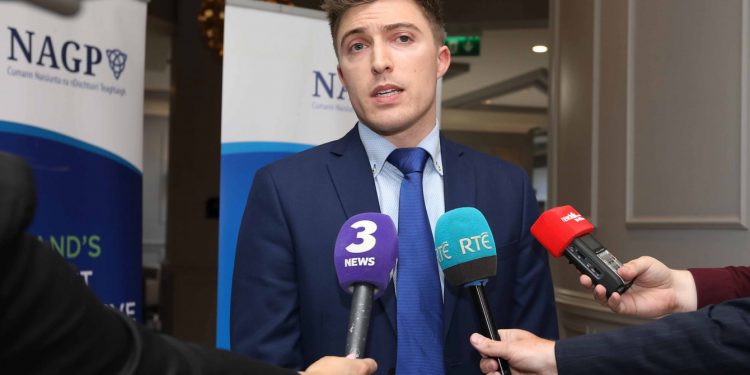The Presidents of the Irish Pharmacy Union (IPU), Daragh Connolly, and the National Association of General Practitioners, Dr Maitiú Ó Tuathail, have jointly called on the Government to begin the phasing out of the €2.00 Prescription Levy paid by Medical Card holders, and, at the very least, to exclude vulnerable patients from the levy in this year’s Budget.
Dr Ó Tuathail, a GP at Safetynet Primary Care (a medical charity for marginalised in society) said, “This fee for medications is unjust and is a significant barrier to the accessing of vital medicines for marginalised patients. A system must be introduced whereby marginalised people are exempted from fees which they frequently cannot afford. Eliminating this fee would significantly help these vulnerable patients, and the cost to the exchequer would be negligible.”
Referring to a 2016 study funded by the Health Research Board (HRB), and co-authored by researchers in University College Cork and Trinity College Dublin, which revealed that prescription charges on the medical card scheme led to reductions in the use of medicines by Irish patients with some types of medicines being affected more than others, Dr Ó Tuathail said, “Independent research shows that, after the 50 cent prescription charge was introduced in 2010, the use of all medicines reduced, which would have caused a reduction in people’s quality of life and may even have had an adverse impact on health outcomes such as heart attacks and stroke. We know that the reduction in adherence to many symptom relieving medicines was even greater after the charge was later increased to €1.50.”
Mr Connolly, a community pharmacist based in Dungarvan, Co Waterford, described the charge as “a levy against health and wellbeing for many people struggling with various ailments and who have very limited financial resources”.
The damaging health impact of the levy on many vulnerable patients was highlighted in the findings of a national Behaviour & Attitudes Survey carried out in April, which found that one in six Medical Card holders would “think twice” about taking their prescribed medicines because of the cost of the levy. The Government-imposed levy now stands at €2.00 per item, four times higher than when it was first introduced at 50 cent per item in June 2010.
Mr Connolly said: “Putting economic barriers in the way of vulnerable patients taking their medicine doesn’t make sense. People living with heart disease, or at risk of the disease, should be focusing on getting better and keeping well, not worrying about how they will pay for their next vital prescription. Poor adherence to treatments, especially in the case of chronic illness and long-term patients, will mean more hospital stays, more pressure on our already struggling health service, and more costs to the Exchequer in the treatment of these patients in the long run.
“Pharmacists and GPs would like to see a phasing-out of the levy and, at the very least, exemptions for especially vulnerable patients, including those in residential care settings; homeless patients; patients receiving treatment under the Methadone Treatment Scheme in respect of other medication that they may require; patients with intellectual disabilities, and palliative care patients. Patients need to be supported, not penalised,” concluded Mr Connolly.
Patients, who, according to the IPU and NAGP, should be exempt from the prescription levy:
- People in residential care settings;
- People with intellectual disabilities;
- Homeless people including those in homeless shelters;
- Palliative care patients and others who need to have their medicines changed on a daily/weekly basis; and
- People receiving treatment under the Methadone Treatment Scheme in respect of other medication that they may require.











